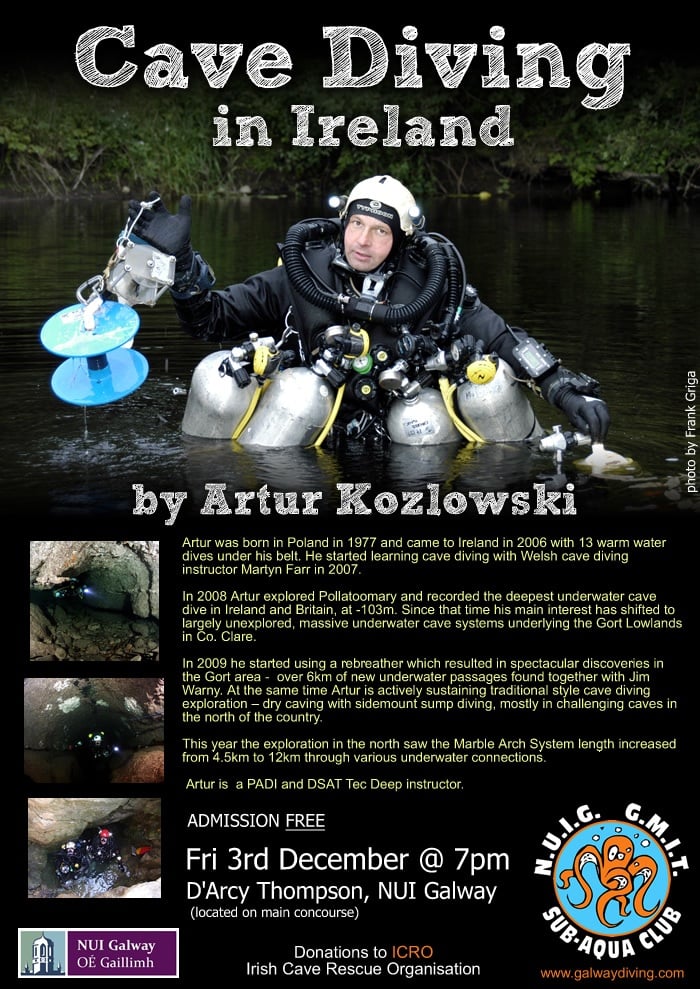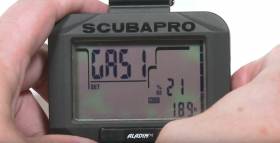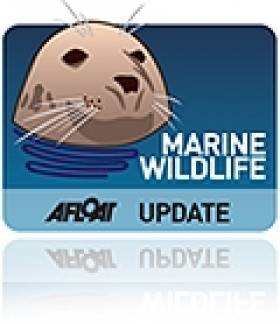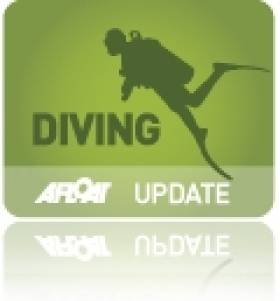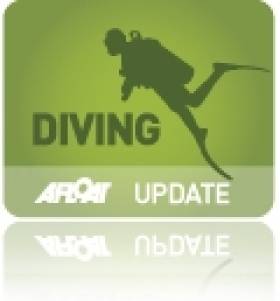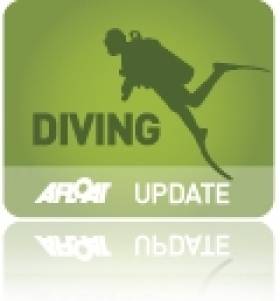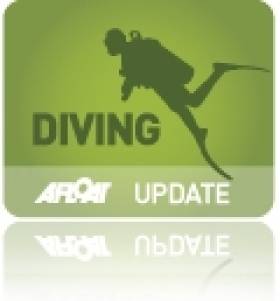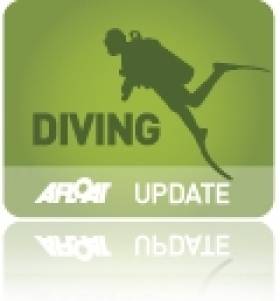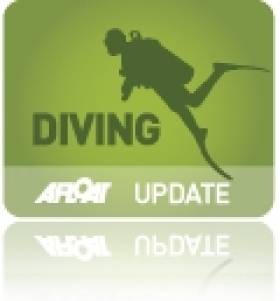Displaying items by tag: SCUBA
Cork Diving Community Fundraising For Hyperbaric Chamber
#Diving - The SCUBA diving community in Cork is raising funds for a hyperbaric chamber to treat divers with decompression sickness, as the Irish Examiner reports.
Otherwise known as ‘the bends’, the potentially fatal condition is contracted when nitrogen bubbles form in the bloodstream of divers who surface from deep dives too quickly.
However, there is only one hyperbaric chamber required for the necessary oxygen therapy that caters for diving emergencies in the Republic, located in Galway.
That’s prompted the creation of the Munster Hyperbaric Chamber Project, to provide emergency facilities for affected divers in Ireland’s south-west in time for the 2017 diving season. The Irish Examiner has more HERE.
In other diving news, two English SCUBA clubs have shared a top award for their expedition to Ratlin Island off the Causeway Coast, according to the Bury Times.
Divers from Bury and Wigan in the greater Manchester area were awarded the Expedition Trophy at the British Sub-Aqua Club Diving Conference recently for their reef and shipwreck dives out of Ballycastle — including one visit to a cruiser torpedoed during the First World War.
SCUBAPRO Aladin Square Dive Watch At A Discount
Looking for a SCUBAPRO Aladin square Dive wrist watch? One's just been added to Afloat's marketplace at a discounted price. Seller Jeremy Leighton is offering a brand new, unused watch that's still in original packaging. He says this Aladin 2 dive watch normally retails for €425 but is yours for €250. Check it out here.
SCUBAPRO say the Aladin Square Dive Computer gives divers the latest in decompression technology in a clean, easy-to-navigate format. Its large screen and sharp numeric readout are highly visible and will appeal to divers who want to focus more on their surroundings than their gear.
Anyone can add items to the marketplace. Click for more info here
Galway Diver Survives Conger Eel Attack
#CongerEel - A Galway businessman had a life-threatening encounter with a conger eel while SCUBA diving in Connemara last month, as the Connacht Tribune reports.
Jimmy Griffin, who owns Griffins Bakery on Galway's Shop Street, describes the wildlife attack as like being "hit by a freight train".
He continued: "It had me by the face and I was being tossed around like a rag doll. It hit my head really hard. My regulator was knocked out of my mouth.
"I knew something was after hitting me and biting me, but I didn’t know what it was. I couldn’t get my hands around it, it was so big. I managed to wrestle it off and the pain started to set in on my face.”
The pain was from a serious bite to the side of his mouth that would have sent a less experienced diver into a dangerous panic.
The Connacht Tribune has much more on the story HERE.
#Diving - An Irishman who set a world record for long-distance SCUBA diving is preparing to double that incredible feat.
Christopher Healy set the Guinness World Record for the fastest SCUBA dive over a distance of 10km in October 2011 in an effort to raise funds for the Share a Dream Foundation, which raised the spirits of his son Stephen when he was diagnosed with Non-Hodgkin's Lymphoma.
The experienced diving instructor - who runs the Atlantic Diving School in Co Clare - followed a long line of Irish divers such as Declan Devine, Sean McGahern and Paul Devane who've either smashed or attempted to smash records in the field.
And Healy has since written a book, The 10K Record, about the highs and lows of his journey to breaking the record.
But this weekend he aims to double that effort - and raise more funds for Share a Dream and Temple Street Children's Hospital - by SCUBA diving an unbroken 20km route in Lough Derg.
Staring at Mountshannon Harbour at 3am this Sunday 7 July, Healy will travel underwater towards Scariff and back via Scilly Island to Killaloe, aiming to arrive around 3pm.
He will be accompanied along the way by a small flotilla of support boats to replace his air supply and record his journey for verification.
For more about Healy's 20km diving challenge and how you can donate, visit the Facebook page HERE.
Naas Sub Aqua Club Seeking New Members
#DIVING - Naas Sub Aqua Club is looking for new members from the East coast and the Midlands as it prepares to celebrate its 40th anniversary, the Leinster Leader reports.
The Co Kildare-based diving club is one of the most active in Ireland, with 40 members regularly going below the surface on weekly excursions from Coal Harbour, Slade Harbour or Kilmore Quay throughout the year.
Summer trips are also organised to locations as far afield as Gozo in the Mediterranean and Cuba in the Caribbean.
Novices are welcome, and anyone interested in getting into diving will be trained in full SCUBA equipment on Thursday evenings at the Curragh Pool over the winter, with open water dives set to resume in February 2013.
The Leinster Leader has more on the club and how to get in touch HERE.
Irishman Breaks Longest SCUBA Dive Record
#DIVING - Irish diver Paul Devane has smashed the Guinness World Record for the longest cold saltwater SCUBA dive in his second attempt.
Diving.ie reports that Devane set a time of 13 hours and 4 minutes off Killary in Co Galway on 9 October - breaking through the bar set by a Maltese team in February this year, who themselves broke the record set by Devane's brother Declan in 2009.
Speaking to the Irish Independent ahead of his successful second attempt, Devane said: "It will be cold, it will be long... There will be no breaks, no meals, no toilet stops."
Devane said his main aim was to raise money for his chosen charities Hang in Hand, supporting families of children with cancer, and the RNLI.
Find out more about Devane and his record-breaking dive HERE.
Dive Ireland Expo Returns
#DIVING - Dive Ireland 2012, Ireland's only dedicated dive expo, promises to be bigger, better and feature more speakers, exhibits and workshops - everything for the dive professional as well as the complete beginner.
The 21st Annual International Dive Show, hosted by the Irish Underwater Council (CFT), will take place at the City North Hotel in Dublin on the weekend of 3-4 March.
This year's show will feature top SCUBA professionals including keynote speaker Rory Golden, who in 2000 became the first Irish diver to visit the wreck site of the Titanic, returning for a second visit in 2005.
Golden will be giving a series of talks on his experiences to mark the centenary of the ill-fated ship's sinking in the north Atlantic.
Dive Ireland 2012 will also feature a huge array of Irish SCUBA companies, free seminars and practical workshops that will cater to a wide range of diver interests, along with a host of in-show features guaranteeing a great day out for divers and non-divers alike.
Visit the Dive Ireland 2012 website for more details on tickets or booking a stand.
Record-Setting SCUBA Diver is Ireland's First Professor of Midwifery
#DIVING - A Guinness World Record holding SCUBA diver has been appointed as Ireland's first ever Professor of Midwifery, the Galway Advertiser reports.
Prof Declan Devine, who is a leading seararcher and scholar in the field, will take up the role at NUI Galway's School of Nursing and Midwifery.
His expertise in childcare goes in tandem with his efforts to raise funds for the care of children with serious illnesses. He serves as director of West of Ireland children's cancer charity Hand in Hand.
Prof Devine has also combined his charitable activities with his passion for SCUBA diving, raising more than €35,000 in 2009 when he set the Guinness World Record for the longest open saltwater SCUBA dive in cold water.
The Galway Advertiser has more on the story HERE.
Irish Diver Feared Drowned in Thailand
An Irish diving instructor is feared dead on Thailand after separating from his team during a deep dive.
TheJournal.ie has compiled reports that Peter McCarthy was with another diver in Song Hong Lake in southern Thailand last weekend when he signalled his intention to stay behind. But he never resurfaced, and his colleagues now fear the worst.
The 47-year-old, who has lived in Thailand for 10 years, had apparently been leading a group of tourists on a dive, using SCUBA gear that allows divers to reach deeper depths than usual.
Kozlowsk Lecture on Cave Diving in Ireland
Of all aspects of scuba diving, the discipline with the highest mortality rate is cave diving writes Timmy Carey. A myriad of things can go wrong, a diver can get lost, run out of air and even worse, carried out in complete darkness if the diver loses their lights. On Friday, the 3rd of December N.U.I.G G.M.I.T Sub Aqua club will be hosting a free lecture on cave diving. The lecture will be presented by Artur Kozlowski and has made a large number of caving breakthroughs in Irish cave systems.
In 2008 he broke the British and Irish depth record in a cave at 103 meters and the lecture promises to be very interesting. The venue is D'arcy Thompson (on the main concourse) in N.U.I Galway.
